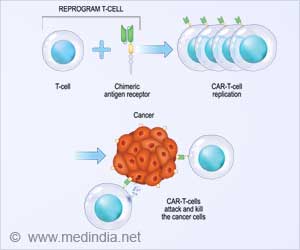Exploring AI's role in personalized cancer treatment decisions, Charité researchers find promise amidst challenges in a study.
- Artificial intelligence uncovers tumor DNA intricacies and guides personalized treatment paths
- ChatGPT scans literature, showcasing potential in cancer care support //
- Charité melds AI progress with human expertise, shaping a patient-centric future in medicine
The Complexity of Precision Oncology
Precision oncology, a specialized field within personalized medicine, hinges on the identification and targeting of specific genetic mutations responsible for tumor growth. This approach involves a meticulous analysis of the genetic makeup of tumor tissue, leading to the crafting of individualized treatment recommendations.The interdisciplinary collaboration at Charité, known as the "molecular tumor board" (MTB), involves experts from pathology, molecular pathology, oncology, human genetics, and bioinformatics. Their collective insights aim to decipher the most promising treatments based on the latest scientific studies, culminating in personalized and effective treatment plans.
The Role of Artificial Intelligence in Treatment Decisions
The researchers, including Dr. Damian Rieke, Prof. Ulf Leser, Xing David Wang, and Dr. Manuela Benary, sought to explore whether AI could streamline and enhance this complex decision-making process.Published in the journal JAMA Network Open, their study involved using large language models like ChatGPT to automatically scan scientific literature for potential personalized treatment options. However, the results indicated that while AI models could identify treatment options in principle, they fell short compared to the capabilities of human experts (1✔ ✔Trusted Source
Leveraging Large Language Models for Decision Support in Personalized Oncology
Go to source).
The researchers created ten molecular tumor profiles for fictitious patients, challenging both a human physician specialist and four AI models to identify personalized treatment options. The outcomes were then presented to the MTB for assessment without disclosing the origin of each recommendation.
The study revealed that, while AI occasionally identified surprisingly good treatment options, it overall performed less effectively than human experts. Challenges such as data protection, privacy, and reproducibility were also highlighted in the context of real-world patient applications.
Despite the current limitations, Dr. Damian Rieke remains optimistic about the potential contributions of AI in medicine. The study demonstrated that as AI models continue to advance, their performance improves. This opens the door to enhanced support for complex diagnostic and treatment processes, with the caveat that human oversight remains essential for result verification and treatment decisions.
Charité's Commitment to AI in Medicine
The study is part of Charité's broader initiative to leverage AI in patient care. Prof. Felix Balzer, Director of the Institute of Medical Informatics, emphasizes the potential benefits of AI in medicine.Projects within Charité, such as fall prevention in long-term care and AI-based prognosis following strokes, highlight the institution's dedication to advancing the intersection of medicine and technology. The ongoing TEF-Health project, led by Prof. Petra Ritter, aims to facilitate the validation and certification of AI and robotics in medical devices.
As the field of oncology continues to embrace the era of precision medicine, the study at Charité sheds light on the evolving role of artificial intelligence in personalized cancer treatment. While AI models may not replace human expertise, their continual improvement suggests a promising future in providing valuable support for complex medical decision-making processes.
The careful integration of AI into the medical landscape, coupled with human oversight, holds the key to unlocking new frontiers in patient care and treatment.
“As AI advances, so does its potential to support complex medical decisions. The future lies in the collaboration between technology and human expertise.”
Reference:
- Leveraging Large Language Models for Decision Support in Personalized Oncology - (https://jamanetwork.com/journals/jamanetworkopen/fullarticle/2812097)
Source-Medindia
















